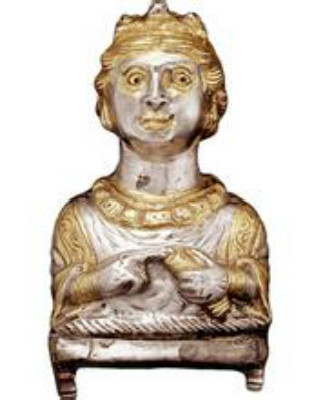For thousands of years western Europeans have been entranced by the spices of the east. Long before curry became the British national dish, we dreamed of transforming our dull island food with exotic flavours from India. For the poet George Herbert, the phrase "the land of spices" evoked a metaphorical perfection at once unimaginably remote and infinitely desirable. So it's perhaps not surprising that spice has, through the centuries, always been not just high poetry but big business. The spice trade between the Far East and Europe funded the Portuguese and Dutch empires and provoked many bloody wars. Already at the beginning of the fifth century, it was a trade that embraced the whole of the Roman Empire. When in 408 barbarian Visigoths attacked the city of Rome, they were induced to leave only on the payment of a huge ransom that included gold, silver, large quantities of silk and one further luxury, a ton of pepper. This precious spice had made its lucrative way all over the Roman Empire, from India to East Anglia. And that's where this programme's object was found.
數(shù)千年前,東方的香料便已傳入西歐。在咖喱成為一道英國(guó)國(guó)菜之前,不列顛人老早就盼望著來(lái)自印度的異域風(fēng)味能對(duì)這個(gè)島國(guó)聞沉悶的食物有所調(diào)劑。對(duì)詩(shī)人喬治·赫伯特來(lái)說(shuō),“香料國(guó)度”是一個(gè)完美的比喻,喚起了人們對(duì)遠(yuǎn)方的無(wú)盡想象與無(wú)盡渴望。因此,千百年來(lái),香料既是詩(shī)歌的主題,也是貿(mào)易的主角。遠(yuǎn)東與歐洲之間的香料貿(mào)易讓葡萄牙荷蘭大獲其利,同時(shí)也引發(fā)了無(wú)數(shù)場(chǎng)血腥戰(zhàn)爭(zhēng)。公元5世紀(jì)初,香料買賣已遍布羅馬全境。公元408年,西哥特人進(jìn)軍羅馬,退兵的條件是巨額賠款,包括黃金,白銀,大量的絲綢以及一噸胡椒。這種珍貴的香料在整個(gè)羅馬帝國(guó)聞境內(nèi)都大有市場(chǎng),從印度一直到本節(jié)物品的發(fā)現(xiàn)地東安格利亞。












